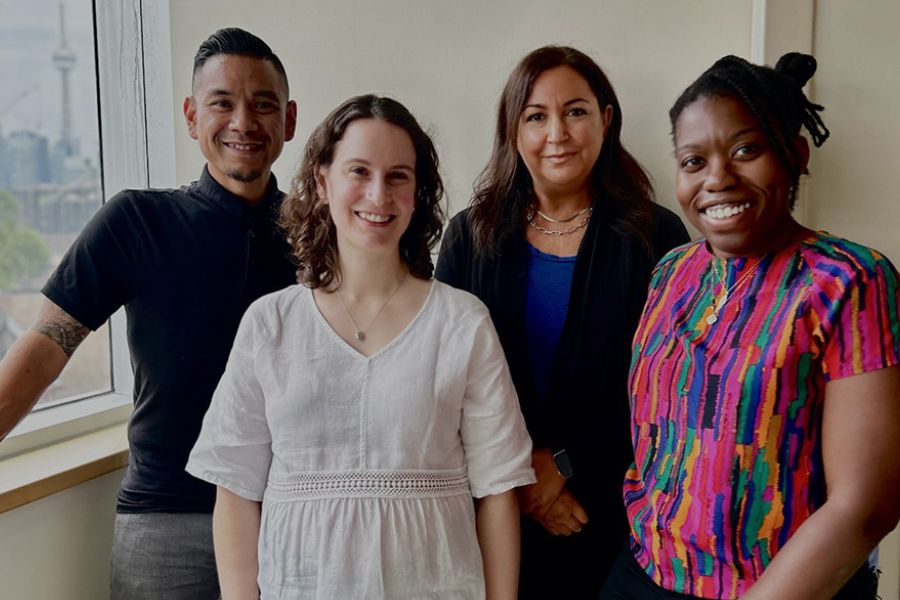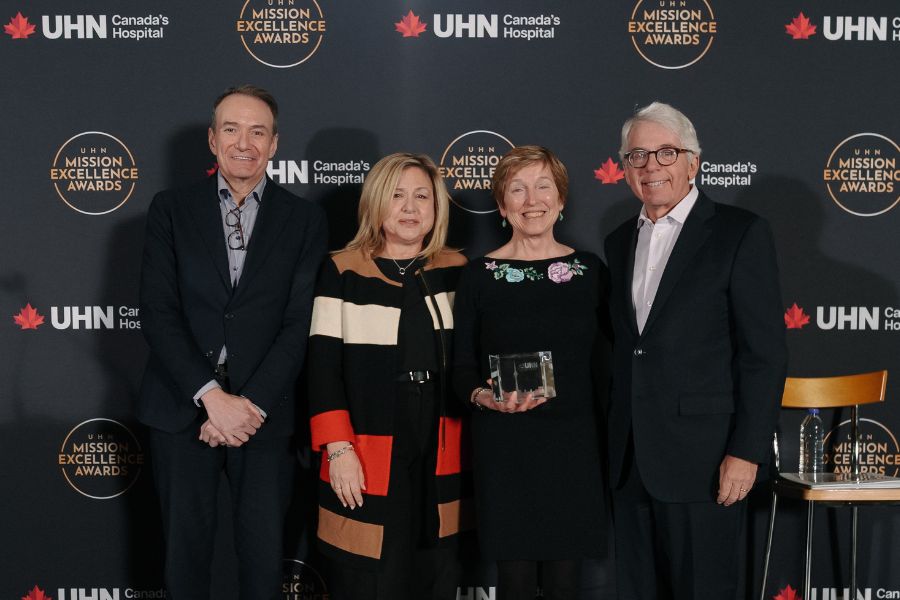
Prior to his bariatric surgery in 2020, Rob Rafanan was living in pain. At age 36, the husband and father of two couldn’t stand on his own and slept in a chair because he could no longer lie down.
Rob’s life has changed dramatically since his gastric bypass.
“I went from not being able to walk three houses down the street to completing a triathlon last year,” says Rob. “Before surgery, I was watching my kids from a chair, now, I’m outside playing with them.”
Today, Rob is an outspoken advocate for the bariatric community, busting myths and encouraging open dialogue about obesity and gastric bypass through his podcast The Weighting Table Podcast.
“Rob is very open with his story, which makes him unique,” says Julia Skiadaresis, registered social worker with the Bariatric Surgery Program at UHN. “There’s a lot of weight stigma in health care, and in the world in general.”
“That stigma leads to feelings of shame and insecurity in many of the patients we see. For some, those feelings of shame are so crippling they might never seek help.”
Pre-pandemic, Julia and her colleague Sasha Winchester facilitated in-person meetings that gave pre- and post-op patients the opportunity to exchange stories and experiences.
“As social workers for the program, we know things in a clinical and academic sense, but we don’t have lived experience,” Sasha says. “We don’t know what it’s like to be a person waiting for or considering bariatric surgery. Peer support is an invaluable resource.”
Rob agrees.
“When I was pre-op, I was constantly looking for a man who was my age,” he says. “Someone I could relate to, living a life I could aspire to.”
Determined to help
When the pandemic restricted hospital activity, in-person meetings – including patient support groups – were put on hold.
Determined to give their pre-op patients peer support, Julia and Sasha decided to design a mentorship program. They began researching existing peer programs within UHN, tailoring their findings to fit the specific needs of their patient population.
Then, Julia and Sasha reached out to UHN Volunteer Services to actualize their plan.
“We were at the point in the pandemic where hospitals were still trying to figure out infrastructure for online and remote services, and because volunteer programs were suspended at the time, the majority of staff in Volunteer Services had been redeployed,” Julia says.
Despite being redeployed, Willy Phan, a Program Coordinator with Volunteer Services at Toronto Western Hospital, facilitated training, onboarding, immunization and orientation for the future bariatric mentors.
“He was so incredible,” Julia says. “He was just determined to help.
“Everyone we met along the way was.”
Thanks to the coordinated effort of TeamUHN, the Bariatric Peer Mentorship Program launched in 2021 with three mentors – including Rob – and 25 mentees.
Today, there is a small waitlist for mentees, a clear indication of the program’s necessity. But there is still work to be done in dispelling harmful myths.
“Something we hear again and again is this idea that bariatric surgery is ‘the easy way out,'” says Sasha. “People have told us ‘I felt like I was giving up coming into this program’ or that they’ve had family members who ask ‘Why don’t you just lose weight? Why can’t you do it yourself?'”
For Rob, it’s about giving people a glimpse of what their future could look like.
“When I was big, I think, subconsciously, it was hard for me to picture a future,” he says. “I think that’s one of the benefits our peer mentorship program offers: it’s a window into a life you could possibly live, a window to the happiness you can possibly achieve.”

No one ever changed the world on their own but when the bright minds at UHN work together with donors we can redefine the world of health care together.


